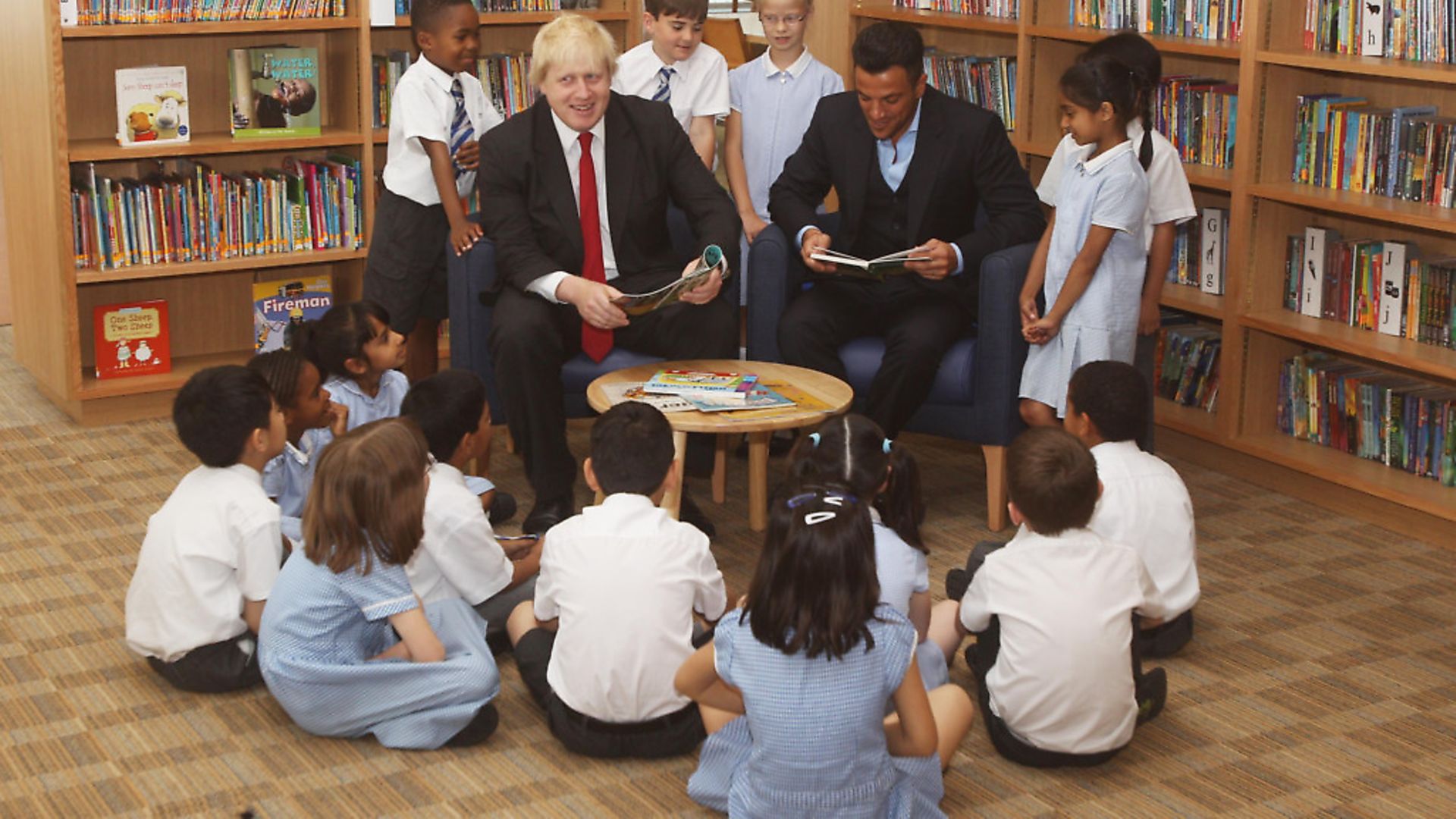
Unlike other Boris Johnson efforts, The Perils of the Pushy Parents is not racist or sexist – it’s just ‘rubbish’.
Two earnest and connected hopes for young Wilfred Lawrie Nicholas Johnson: One, that on December 13, 2024, his dad suddenly has a lot more time on his hands with which he can spend reading to him. Two, that no matter how hard his father tries to sneak it into the bedside pile, the reading matter in question does not include The Perils of the Pushy Parents by Boris Johnson.
Who even knew the prime minister had written a children’s book? But there it is from 2007, buried in his bibliography beneath the collections of columns, the self-serving Churchill biography, the book of sub-Clarkson car reviews (‘it was as though the whole county of Hampshire was lying back and opening her well-bred legs to be ravished by the Italian stallion’) and the highly dubious Four Lions-alike flop comic novel Seventy-Two Virgins, with its references to ‘a mega-titted six-footer’ and the where-to-start sentence ‘The interesting thing about his half-caste looks, he decided, was that he didn’t look Negroid’.
Unlike other Johnson efforts, The Perils of the Pushy Parents is not racist or sexist. It’s just bad, confirming that Johson’s most successful fiction – like EU bans on prawn cocktail crisps and non-conformist bananas – is created when he is pretending to write facts.
But while it may lack the outrages of his other work, it does confirm plenty of our worst suspicions about Boris Johnson: that he’s lazy, that he’s pompous, that he’s a con man.
Have your say
Send your letters for publication to The New European by emailing letters@theneweuropean.co.uk and pick up an edition each Thursday for more comment and analysis. Find your nearest stockist here or subscribe to a print or digital edition for just £13. You can also join our readers' Facebook group to keep the discussion and debate going with thousands of fellow pro-Europeans.
Why don’t we know about The Perils of the Pushy Parents? Perhaps because Johnson appears to have written it to mark the 100th anniversary of Hilaire Belloc’s 1907 book Cautionary Tales for Children, which featured poems like Jim, Who Ran Away From His Nurse, And Was Eaten By A Lion, which became a favourite of the monologist and actress Joyce Grenfell.
No doubt the book was a favourite during Johnson’s childhood, but by 2007 youngsters had moved on to other kinds of Bellocs – the Harry Potter finale was the year’s best-selling book – and this might explain why Boris’ work appears to have sunk without trace and failed to resurface since.
Belloc himself was a comic writer and chancer who dabbled in politics (he was briefly a Liberal MP while also being a leading light in the anti-suffrage movement) and fancied himself a historian. He wrote some dodgy stuff about Islam too. Amazing, isn’t it, that Johnson identifies with him?
Yet while Belloc’s 1907 work entranced children with its wit and grace, Johnson’s 2007 follow-up proceeds with all the elan of a middle-aged man rugby-tackling a 10-year-old for publicity and LOLs. The plainly autobiographical plot, illustrated by Johnson’s own line drawings of a bowl-haired blond boy, involves Jim and Molly Albacore (‘the nicest kids you ever saw’) and their mum and dad, who have high hopes for their offspring.
Says the mother: ‘We’d rather hoped the BBC/Would hire you as a news trainee. And after that, it’s our intent/To shove you into parliament. Up the greasy pole and then/Propel you into Number 10.’ Now, whose fortuitous career path does that remind you of?
The Johnson-Albacore parents, like so many real-life tutors, editors, civil servants, cabinet colleagues and electors, want Boris/Jim to settle down and get on with his work. Naturally, he disagrees and would rather watch telly.
You get the sense that both sides won skirmishes as Johnson grew up – in this text the author is able to namecheck Aristotle, Cecil B de Mille, the Molotov-Ribbentrop pact and Zeno of Elea without any real sense that he understands their significance.
Where Belloc used bad rhymes to elicit a grin and a groan, Boris uses them to show off (‘When they were babies in the womb/He’d read them Berkeley, Locke and Hume… He’d zap the programme off and holler/ ‘Go and read some Emile Zola”).
The whole thing quickly peters out towards the conclusion that a little learning is just enough, though there is the unexpectedly self-aware couplet ‘The source, my friends, of half life’s trouble/Is seeking reputation’s bubble’.
The best thing that can be said for this book is its brevity. While a typical novel might run to between 80,000-100,000 words, here the text is condensed into 48 pages of around 100 words each. For this, the publishers were asking £10.
Johnson might not have had much to say in The Perils of the Pushy Parents, but that price point alone speaks volumes about the arrogance of a man who thinks he can serve up any old rubbish to the British people and they will buy it.
In 2007, they didn’t. In 2020, it would probably be a best-seller.
Warning: Illegal string offset 'link_id' in /mnt/storage/stage/www/wp-includes/bookmark.php on line 357
Notice: Trying to get property 'link_id' of non-object in /mnt/storage/stage/www/wp-includes/bookmark.php on line 37







